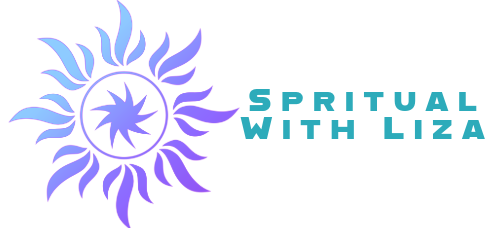11 Spiritual Warnings From the Devil Tarot Card: Temptation, Shadow & Freedom
The Devil Tarot card points to hidden temptations and unseen shadows in your life. It reminds you to watch for unhealthy attachments, such as compulsive habits or emotional traps. These can prevent you from gaining true freedom. Recognizing these issues is often difficult, but doing so helps you become more self-aware. By paying attention to these warnings, you can see how illusions of control might mislead you. Facing your shadows can then help you find real freedom and clarity.
Recognizing Unhealthy Attachments and Addictions
Sometimes, we don’t notice how certain attachments or habits control our lives. These habits may seem harmless at first. You might repeatedly fall into the same patterns without realizing it.
External factors, like friends or social media, can push you into unhealthy dependencies. Recognizing these bonds helps you understand what holds you back. This could be addiction, overindulgence, or emotional attachment.
These habits create a false feeling of connection. They make you believe you belong, but they drain your energy.
The Devil tarot card shows us to be honest with ourselves. Recognize what controls you. Then, take steps to break free.
Seek genuine connection and find balance in your life.
Confronting Our Shadow Aspects
Facing your shadow parts can feel uncomfortable at first. However, this step helps you grow and become more self-aware. Start by using simple routines like journaling or meditation. These activities help you connect with yourself and seek guidance from a higher power.
They provide a safe space to explore feelings and traits you usually avoid. Remember, you aren’t alone. Many people find that seeing their shadows helps them feel more connected and understood.
Trust that guidance will show you what needs healing or acceptance. By calmly facing these parts, you open the door to more freedom and honesty.
Approach this process with kindness and curiosity. Know that it leads to a complete and loving sense of self.
Identifying Limitations We Unknowingly Accept
Recognizing the limits we accept can be like finding unseen walls inside our mind. These boundaries shape how we see ourselves and what we’re willing to try.
Often, we don’t notice these limits. When we don’t set healthy boundaries, we hold ourselves back from growth and happiness without realizing it.
Strengthening emotional resilience helps us face these hidden limits with courage. It helps us challenge beliefs that stop us, whether about what we deserve or how much we can change.
By gently questioning these invisible walls, we create space for more freedom and connection.
The Illusion of Control and Power
Even though it feels like we control our lives, most of what we believe about power is an illusion. This false sense of control makes us think we’re the bosses of our fate.
But life often shows us how unpredictable it really is, like trying to hold water in our hands. When we believe in this false sense of power, we can lose sight of our true strength — our inner resilience and our link to something bigger.
Knowing this illusion exists can help us let go of unnecessary stress and unrealistic expectations. It reminds us that real control isn’t about dominating everything. Instead, it’s about choosing how we respond.
Even when things are uncertain, we’re never truly alone.
The Danger of Materialism and Too Much Desire
Focusing only on material things like the newest gadgets or stylish clothes may seem to bring happiness. But too much desire for possessions can distract you from what truly matters.
Wanting more stuff creates a shallow image that impresses others but leaves you feeling empty inside. It can cause you to miss out on real connections, personal growth, and peace of mind.
Chasing wealth or possessions often results in a never-ending cycle of wanting more. Letting go of materialism helps you find true happiness and belonging through simple, meaningful experiences.
Real freedom comes when you realize possessions are temporary and don’t define your worth.
Spotting Patterns of Self-Destruction
People often fall into patterns that cause harm without realizing it. For example, chasing money or focusing on appearances may seem satisfying at first. Buying the newest gadgets or displaying status symbols can give quick joy. But these actions may also lead to harmful habits.
They can leave you feeling empty inside, even though they seem rewarding. Recognizing these patterns requires honesty. It’s easy to hide behind a polished exterior.
When your focus becomes an obsession, and your sense of worth depends only on looks, you may be heading toward self-destruction. The best step is to pause and ask if these pursuits truly fill your inner needs.
Genuine happiness comes from acceptance, not just showing off outwardly.
Understanding the Role of Fear in Bondage
Fear acts like a hidden chain that keeps us stuck. It makes us feel trapped, even when we want to be free.
When we act out of fear, we deepen our spiritual ties. We start to believe we’ve no choices. Fear makes us ignore our inner voice. It causes us to hold on to what’s familiar, even if it makes us uncomfortable.
Recognizing that fear, not facts, creates false limits helps us break free.
To overcome fear, try these steps:
- Notice when fear causes resistance
- Be kind to yourself during tough times
- Talk with friends or mentors who support you
- Replace negative thoughts with positive words
- Find out what truly blocks your progress
Embracing Personal Responsibility for Liberation
Taking responsibility for your own liberation means understanding that you have the power to choose your path. Even when it seems easier to wait for others to change things, you can make decisions that move you forward.
When you accept your inner freedom, you claim your spiritual sovereignty. This means acting in ways that match your true self. It involves owning your choices and trusting they help you grow.
Instead of depending on outside approval or blaming others, you see that your freedom comes from inside you. This mindset gives you a sense of belonging because you realize you’re the creator of your spiritual journey.
Listening to Inner Temptations and Distractions
Have you ever felt pulled in different directions by thoughts or feelings that seem to come out of nowhere? That’s your mind offering tempting distractions or leading you off your spiritual path.
Recognizing these moments is important so you can stay connected with your true purpose.
To handle these challenges, try these steps:
- Notice distractions without judging yourself.
- Pause before giving in to tempting feelings.
- Ask if these distractions help your higher self.
- Reduce things that make you lose focus or feel overwhelmed.
- Talk with trusted friends or mentors for support.
Listening closely to these inner temptations helps you understand your weak spots. It also keeps you aware of your freedom.
You aren’t alone on this journey. With awareness, you can turn temptations into chances to grow stronger.
The Significance of Inner Work and Self-Reflection
Inner work and self-reflection are key tools for understanding yourself better and growing spiritually. When you practice mindful meditation, you create a quiet space to observe your thoughts and feelings without judging them. This helps you discover hidden parts of yourself.
Dream analysis is another helpful method. Your dreams often show subconscious truths and areas where you hide or avoid things. Reflecting on these insights gives you clarity and strength to face your shadows.
This process is about growth, not perfection. Gently exploring your inner world strengthens your sense of belonging and self-compassion. Like caring for a garden, inner work nourishes your soul and keeps your spirit alive.
Cultivating Awareness for Genuine Freedom
Growing your awareness opens a clear view of your true self. It helps you see beyond habits and automatic reactions.
Practicing mindful breathing keeps you present. It allows you to notice your thoughts and feelings without judging them.
Using intentional gratitude shifts your focus to positive aspects. It helps your heart open to belonging and understanding.
To strengthen this awareness, try these steps:
- Reflect each day on what you genuinely feel grateful for
- Watch your reactions during difficult moments
- Set specific times to meditate or pause intentionally
- Identify patterns in your behavior
- Connect with others who also aim to grow and learn
Frequently Asked Questions
How Does the Devil Tarot Card Warn Against Spiritual Enslavement?
The Devil tarot card warns you to be aware of your attachments, temptations, and fears. These can trap you and limit your inner freedom. The card urges you to question the control your ego has over your mind and choices. It encourages you to seek true freedom from these forces. By doing so, you can grow spiritually and find genuine connection and belonging. Recognizing these dangers helps you avoid spiritual enslavement and stay true to your inner self.
Can the Devil Card Indicate Positive Temptations or Only Negative Influences?
The Devil card can show both negative and positive influences. It often warns about unhealthy attachments or temptations that lead to trouble. But it can also encourage you to recognize your inner desires and to take control. Sometimes, it points to temptations that can have positive results if approached wisely. The card invites you to understand your shadow side and find freedom through self-awareness and growth. It reminds you that not all temptations are harmful. Some can help you discover what truly matters and lead to personal empowerment.
What Symbolic Meanings Does the Devil Figure Hold in Different Spiritual Traditions?
The devil figure has different symbolic meanings in various spiritual traditions. In some traditions, the devil represents temptation and evil. It reminds people of the risks of immoral choices. In other traditions, the devil symbolizes inner shadows and personal struggles. It reflects aspects of the self that need understanding and integration. Some cultures see the devil as a warning against greed, pride, or harmful behaviors. In others, the devil is viewed as a symbol of change and transformation. Recognizing these diverse meanings helps people relate to the devil figure. It encourages personal growth and a sense of connection with others.
How Can Recognizing the Devil Card Inspire Personal Transformation?
Recognizing the devil card helps you start shadow work. It prompts you to face your inner conflicts. This process allows you to understand your fears and limiting beliefs. As you work through these challenges, you can grow stronger and more self-aware. Over time, this effort leads to personal freedom. Embracing the devil card helps turn fears into opportunities for insightful transformation. This journey fosters a deeper sense of belonging and self-acceptance.
Is the Shadow Self Always Linked to Destructive Behaviors in Spiritual Growth?
The shadow self is not always destructive. Through shadow integration, you gain strength and understanding. Accepting all parts of yourself helps you feel connected and supports your spiritual growth. It does not have to cause harm.

Liza Stockholm is an esteemed spiritual guide and the visionary behind Spiritual with Liza. With a profound passion for empowering others on their spiritual journey, Liza offers a blend of educational content and personal guidance. Her expertise in spirituality is rooted in years of dedicated practice and study, making her a trusted companion for those seeking enlightenment and inner peace.







